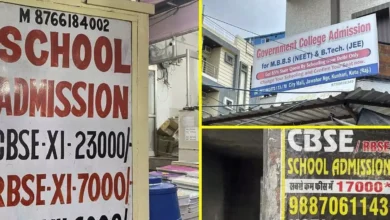Singapore watchdog threatens to unwind Uber’s Southeast Asia exit deal
Uber’s exit from Southeast Asia may be done and dusted, but the deal — which saw Grab take over its local operations in exchange for a 27.5 percent stake — is coming under pressure in Singapore where the country’s antitrust regulator has threatened to unwind the deal because it has reduced competition.
The Competition and Consumer Commission Singapore (CCCS) today announced the result of a three-month investigation into the deal and its provisional findings offer some fairly scathing conclusions.
Primarily, CCCS said that Uber and Grab “have not been able to show that the transaction gives rise to efficiencies that would outweigh the harm to competition.”
In more specific detail, it said that “taxi booking services pose an insufficient competitive constraint.” The organization voiced concern that new ride-hailing entrants are significantly disadvantaged because require a “significant amount of upfront capital” to compete and, even then, they must battle existing networks that favor larger organizations.
The commission claimed Grab has already taken advantage of its dominant position by raising prices, although that’s something that Grab denies doing. Furthermore, CCCS also expressed concern that Grab’s service will stagnate if it is not challenged by competitors in the ride-hailing space.
“Without sufficient competition post-transaction, Grab would be able to raise fares for riders and commission rates for drivers, lower the quality of its services and reduce innovating its product offerings,” CCCS wrote in its findings.
Grab criticized the report for taking “a very narrow approach in defining competition.”
“While we are one of the most visible players in transport, we are not the only player in the market. CCCS has not taken into account the dynamic developments and intense competition going on over the past few months, from both new and incumbent taxi and ride-hailing players,” the company addd in a statement.
As a next step, CCCS has asked Grab to restore its pre-deal pricing and commission rates, cut exclusivity agreements with taxi operators, and remove lock-in for drivers that use its rental partners or Uber’s Lion City Rentals business.
The deal is, of course, long-since closed but the organization has threatened that it could unwind the transaction in Singapore or hit both Uber and Grab with fines.
The initial Singapore investigation pushed the closure of Uber’s Southeast Asia service back by one month, while it was extended by a week in the Philippines. Uber’s service covered a total of seven markets, but this action from CCCS would only impact Singapore.
Here’s Grab statement in full:
We have considered the CCCS’ Proposed Infringement Decision and disagree with their analysis. The CCCS appears to have taken a very narrow approach in defining competition. While we are one of the most visible players in transport, we are not the only player in the market. CCCS has not taken into account the dynamic developments and intense competition going on over the past few months, from both new and incumbent taxi and ride-hailing players.
Even though not required by the law, we had informed the CCCS that we were making a voluntary notification, as well as proactively engaged with the CCCS before the transaction was signed. We conducted the acquisition legally and in full compliance with Singapore’s applicable competition laws.
We fully cooperated with the CCCS throughout the course of their review, and had proactively proposed voluntary commitments over and above the Interim Measures Directions (IMDs), to ensure consumers’ and drivers’ interests are taken care of, which the CCCS had rejected. Grab has complied with all areas of CCCS’ IMDs including maintaining base fare levels, surge factor and driver commission rates.
This provisional decision and proposed remedies are overreaching and go against Singapore’s pro-innovation and pro-business regulations in a free market economy. We note that the provisional decision is not final nor effective yet, and we will submit our written representations to the CCCS before the deadline. We will take all appropriate steps to appeal against this decision.
Source: TechCrunch
To Read Our Daily News Updates, Please Visit Inventiva Or Subscribe Our Newsletter & Push.




